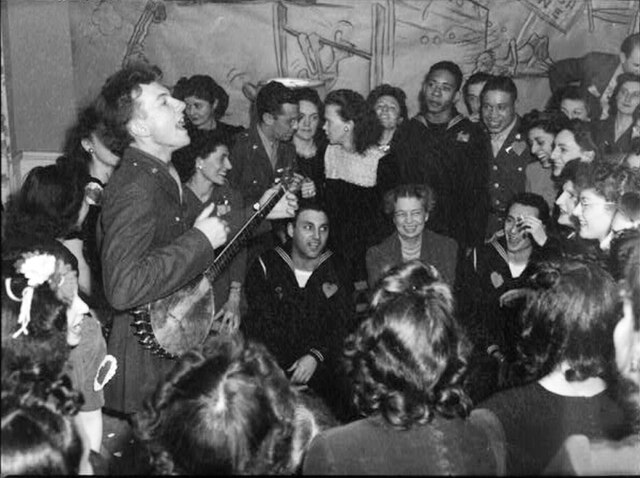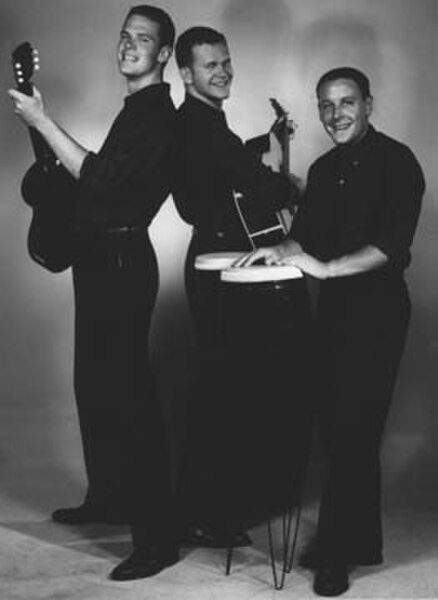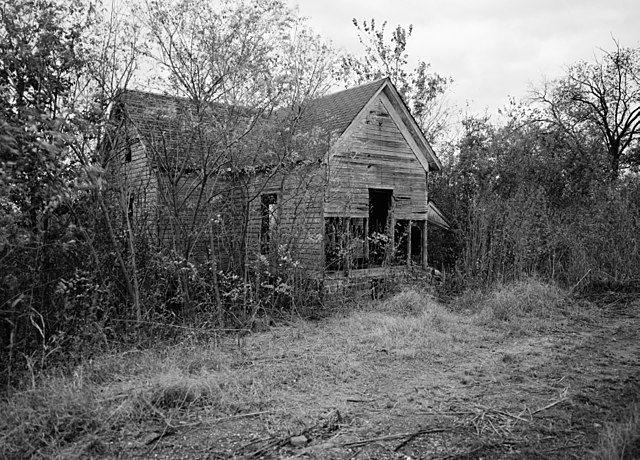American folk music revival
The American folk music revival began during the 1940s and peaked in popularity in the mid-1960s. Its roots went earlier, and performers like Josh White, Burl Ives, Woody Guthrie, Lead Belly, Big Bill Broonzy, Richard Dyer-Bennet, Oscar Brand, Jean Ritchie, John Jacob Niles, Susan Reed, Paul Robeson, Bessie Smith, Ma Rainey and Cisco Houston had enjoyed a limited general popularity in the 1930s and 1940s. The revival brought forward styles of American folk music that had in earlier times contributed to the development of country and western, blues, jazz, and rock and roll music.
Singer-songwriter Woody Guthrie emerged from the dust bowl of Oklahoma and the Great Depression in the mid-20th century, with lyrics that embraced his views on ecology, poverty, and unionization, paired with melody reflecting the many genres of American folk music.
Pete Seeger entertaining Eleanor Roosevelt, honored guest at a racially integrated Valentine's Day party marking the opening of a canteen for the United Federal Workers of America, a trade union representing federal employees, in then-segregated Washington, D.C. Photographed by Joseph Horne for the Office of War Information, 1944.
The Kingston Trio in 1958
Woody Guthrie in 1943
Woodrow Wilson Guthrie was an American singer-songwriter and composer who was one of the most significant figures in American folk music. His work focused on themes of American socialism and anti-fascism. He inspired several generations both politically and musically with songs such as "This Land Is Your Land".
Guthrie with a guitar labeled "This machine kills fascists" in 1943
Woody Guthrie's Okfuskee County, Oklahoma, childhood home as it appeared in 1979
Woody Guthrie, 1943
As a part of Guthrie's centennial celebrations, the New Multitudes performers played compositions including his lyrics at Webster Hall in New York City (from left to right: Anders Parker, Will Johnson [drumming], Jay Farrar, and Yim Yames)






